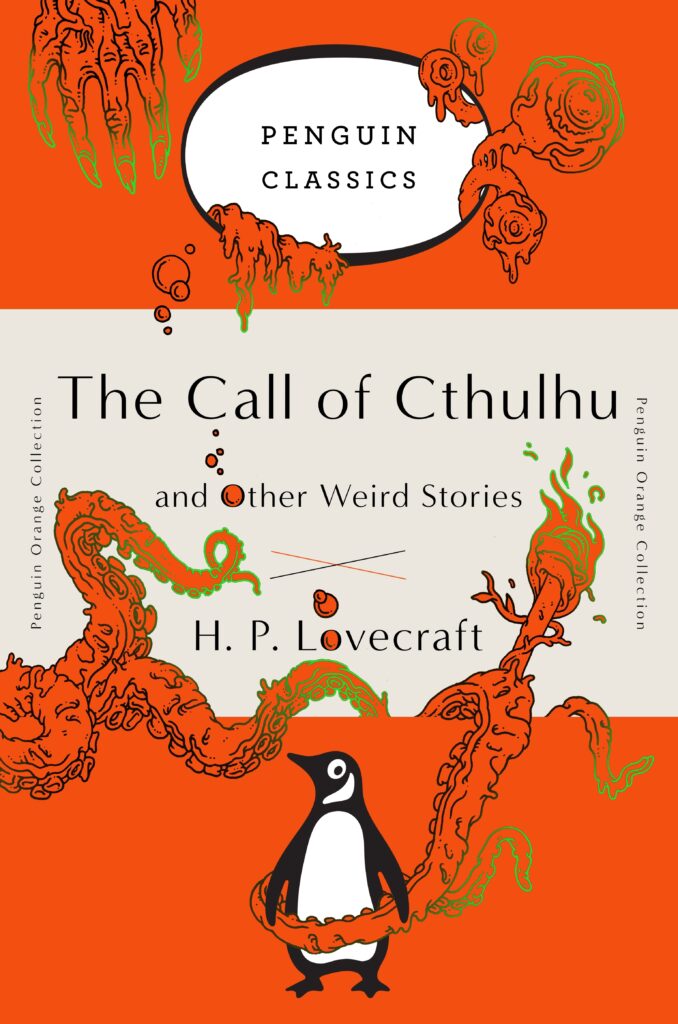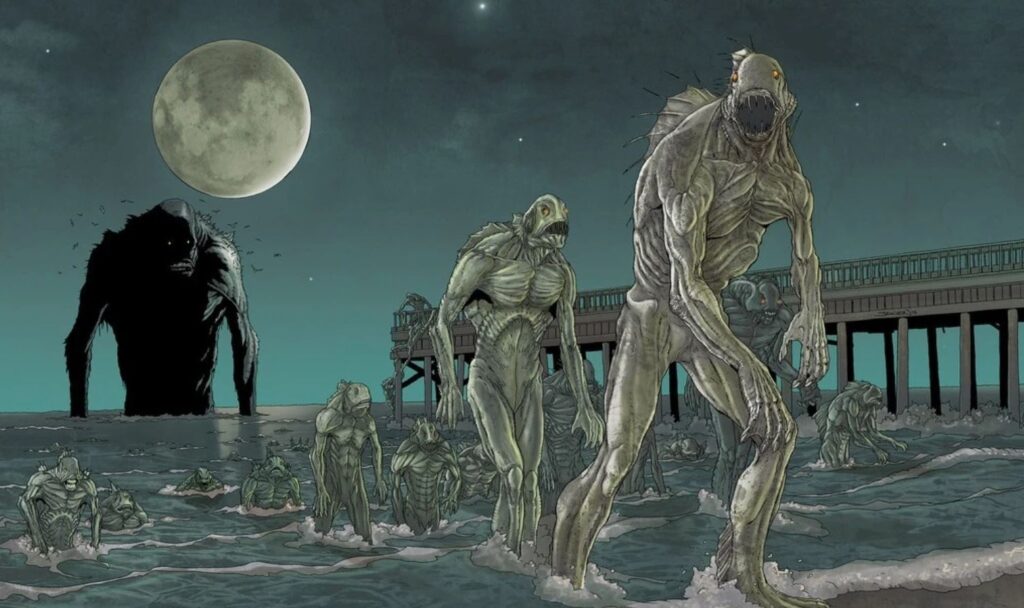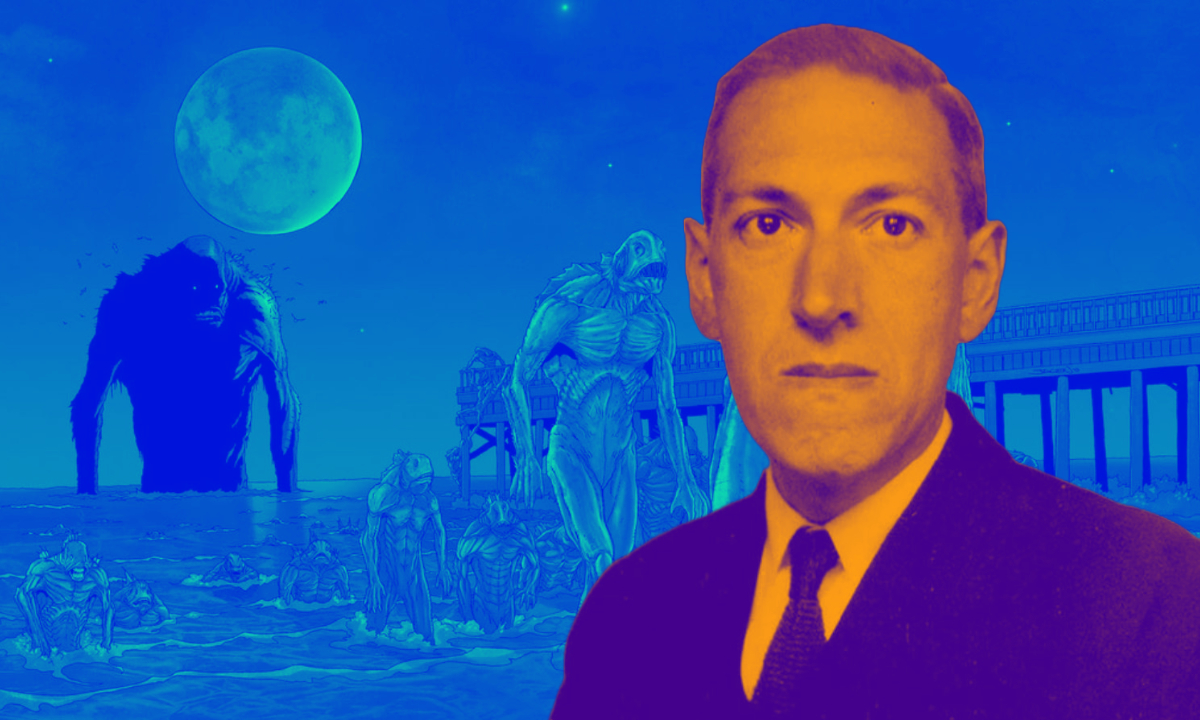Lovecraftian horror has been the cornerstone of the horror genre in pop culture. It comes from the famous horror writer, H.P. Lovecraft. Learn more about his best works and the horror genre they gave rise to below!
Human imagination has been spellbound by horror for a long time. It has spread its terrifying tendrils throughout time and across cultures. Regarding horror as a genre, it speaks to our deep-seated interest in fear, the macabre, and the unknown. Through the medium of fiction and well-crafted nightmarish narratives, horror simultaneously entertains and scares us, and this combination has enthralled audiences for centuries now. From the eerie echoes of old folklore and myths to modern-day psychological horror, the genre is ever-growing, creating new subgenres and ways to understand and experience it, all while exploring the key question of what draws us to the darkest corners of reality.
One of these subgenres was pioneered by American author H.P. Lovecraft. Starting from the early 20th century, H.P. Lovecraft played a crucial role in shaping the genre’s evolution, moving forward and introducing his characteristic cosmic horror and unsettling themes. Lovecraft’s legacy extends beyond the conception of the Cthulhu Mythos; his exploration of the irrelevance of humanity within an unfathomable universe significantly impacted horror fiction. His writings have inspired subsequent generations of writers, artists, filmmakers, and even video game developers to delve deeper into the world of the uncanny, unusual, and unnerving. Perhaps his greatest achievement as a writer is to tap into collective fear of the unknown and craft narratives revolving around that in a way that balances the real and surreal. All of this makes him a pillar of horror fiction as a whole.
Major Works of H.P. Lovecraft
H.P. Lovecraft was primarily known for his distinct take on the horror genre. He mainly wrote short stories and some novellas on the same. These short stories were often published in the popular pulp magazine Weird Tales, although Lovecraft was an almost unknown name even at the time of his death. Additionally, Lovecraft wrote some poetry that dealt with themes similar to cosmic horror prose but reflected his racist and xenophobic views. These views are also present in his short stories and novellas, to varying degrees, which has landed his writing in some controversy. Nevertheless, his works have inspired famous artists such as horror author Stephen King, comic book writer Alan Moore and film directors Guillermo del Toro and John Carpenter.
Here is a look at some of Lovecraft’s best-known short story collections and novellas:
1. The Call of Cthulhu and Other Weird Stories

The Call of Cthulhu is arguably Lovecraft’s best-known work, as it also forms the foundation for his “Old Ones” mythology. Revolving around an age-old fusion of a dragon and a sea monster, the narrative sees it subtly embed itself within human consciousness, gradually inducing madness. The fanatics who revere Cthulhu take part in ritualistic murders and speak in weird, unknown languages. As more and more details about it and its past emerge, the protagonist (who narrates in first person) comprehends that absolute safety from such a formidable being is not possible – even he himself isn’t safe.
The other notable stories in this collection are Dagon and The Rats in the Wall, to name a few. The Call of Cthulhu is eerie, suspenseful and mysterious, not to mention deeply unsettling. Told as an epistolary tale, the narrator Thurston slowly pieces together vague hints and fragments from different kinds of documents. The story and how it is shown to readers makes us question whether Thurston’s perception of events is correct or whether he has connected things that are simply unrelated; it even makes us question his sanity. This short story also explores the themes of obsession, dreams, fate and fear. Despite being regarded as one of his best stories, Lovecraft reportedly wasn’t very impressed by the tale himself.
Also Read: New Trinity in Horror Cinema – Films of Jordan Peele, Robert Eggers, and Ari Aster Ranked
2. At the Mountains of Madness
Amongst his most well-known stories, At the Mountains of Madness portrays an unsuccessful Antarctic expedition narrated by Professor William Dyer. Upon their arrival at the expedition base, Dyer and his associates are filled with exhilaration upon uncovering remnants of a previously unknown prehistoric species, with several specimens preserved perfectly. However, their initial enthusiasm quickly turns to profound dread as they come to realise that these presumed specimens might still be alive. At the Mountains of Madness stands as a crucial narrative regarding the Old Ones, here referred to as the “Elder Things” by the explorers due to the increasing evidence of their prehistoric age and origins that they find. For instance, Dyer and his colleague stumble upon colossal, non-human architecture remains, accompanied by inscriptions that detail the evolutionary trajectory of the Elder Things and insinuate their eventual exodus into the depths of the ocean.
Apart from his highly skilful use of terror, anxiety, and eerie atmosphere, all of which are the strongest tools in his writing arsenal, Lovecraft employs something different in this story – sympathy for The Other. This is through one of his characters who pity and even try to picture the events from the view of one of the ancient, evil creatures. At the Mountains of Madness is also notable for featuring Lovecraft’s worldbuilding at its strongest, creating a sensation of chilling fear.
3. The Shadow over Innsmouth

The Shadow over Innsmouth follows narrator Robert Olmstead, who reaches the decaying coastal town of Innsmouth, Massachusetts. While spending time in the town, he notices a negative, hostile reception and ambiance towards him from the locals. Olmstead eventually discovers that the town’s past is connected to a pact made with prehistoric aquatic creatures known as the Deep Ones. The outcome of this was a mixed population with unusual facial features. Robert Olmstead uncovers the disturbing revelation about the town’s interactions with these creatures and how they interbred as part of their pact. He attempts to flee and is caught in conspiracies and horrific plots, eventually understanding how strong the Deep Ones’ influence on Innsmouth’s inhabitants is and how far they will go to protect their secrets.
Offering a chilling, immersive story, The Shadow over Innsmouth is another example of Lovecraft’s skill in creating a subtle yet horrifying atmosphere that permeates his works. The dying town, Innsmouth, is experienced first-hand by the reader through Lovecraft’s detailed descriptions, drawing them and Robert Olmstead into a sort of morbid curiosity. The well-done pacing adds to the suspense of the story as well. Ultimately, one of the story’s key themes is what people will do when faced with the unknown and terrifying, in this case, the Deep Ones, and how far they will go to survive.
Why You Should Read H.P. Lovecraft’s Works
As has already been mentioned, Lovecraft doesn’t deal with cheap or at least more immediate horror such as jump scares, gore, and the like, instead opting for a more unsettling, fearful atmosphere through his settings. As the pioneer of cosmic horror, Lovecraft offers a unique perspective with his depiction of humanity as irrelevant in an indifferent universe. The universe he crafts is also inhabited by Cthulhu and other creatures from his mythos, who are terrifying supernatural beings beyond people’s comprehension. These monstrous creatures and the world they inhabit are brought to life with detailed, disturbing prose that draws readers in despite themselves.
Lovecraft’s exploration of fear and psychology is interesting, and his worldbuilding is strong yet subtle, with various interconnected stories and mythologies whose relations may not be immediately obvious. How he explores his characters’ sanity through their fear, anxiety, obsession, and paranoia and his writing techniques are noteworthy. His stories’ impact on the horror genre is so significant that any story surrounding cosmic, supernatural horror is termed Lovecraftian.

